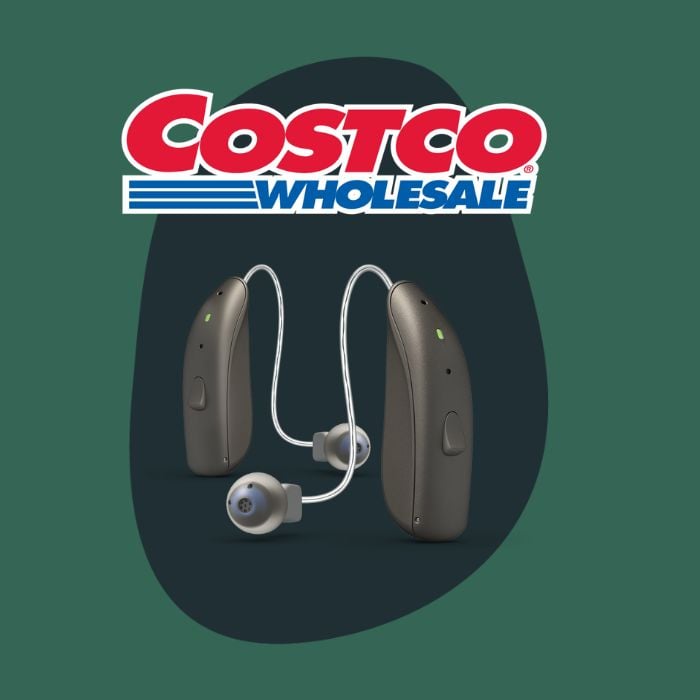Key Takeaways:
- Costco can be a reasonable option for patients with severe hearing loss looking for budget-friendly options.
- Costco used to have several products for profound hearing loss, but currently does not have good options for profound hearing loss.
- Appropriate listening strategies and visual cues are also important for profound loss.
.png)
If you'd like to know more about what options Costco has for profound hearing loss, you've come to the right place. This post will steer you through Costco's options for profound loss, ensuring you make an informed choice that resonates with your needs.
As an audiologist with experience guiding patients through the complex landscape of hearing loss, I have had the privilege of assisting those with hearing loss ranging from mild to profound find the technology that best suits their unique needs. One topic that patients ask about often is Costco. Maybe they’ve heard good things from friends or family about their experience with hearing aids from Costco and wonder whether they should consider it too. I’ve even had some patients ask me to check their Costco hearing aids to see if they’re set appropriately. I’ve been happy to report on many occasions that their hearing aids are programmed appropriately for their hearing loss. Costco sometimes gets a bad rap. And while it’s not the right option for everyone, there are some compelling reasons to consider it.
Understanding Profound Hearing Loss
Before we talk about the best hearing aids at Costco for profound hearing loss, it's helpful to understand what it means to have hearing loss. Here are a few examples to give you a sense of what someone with mild, moderate, severe, or profound hearing loss might experience.
Profound hearing loss is not a one-size-fits-all condition; the experiences and capabilities of individuals with this level of hearing impairment can vary widely. The most common type is profound high-frequency hearing loss, which typically means that the individual hears best in the low frequencies. What does this mean for you or your loved one? Simply put, while conversation could be audible, it lacks clarity.
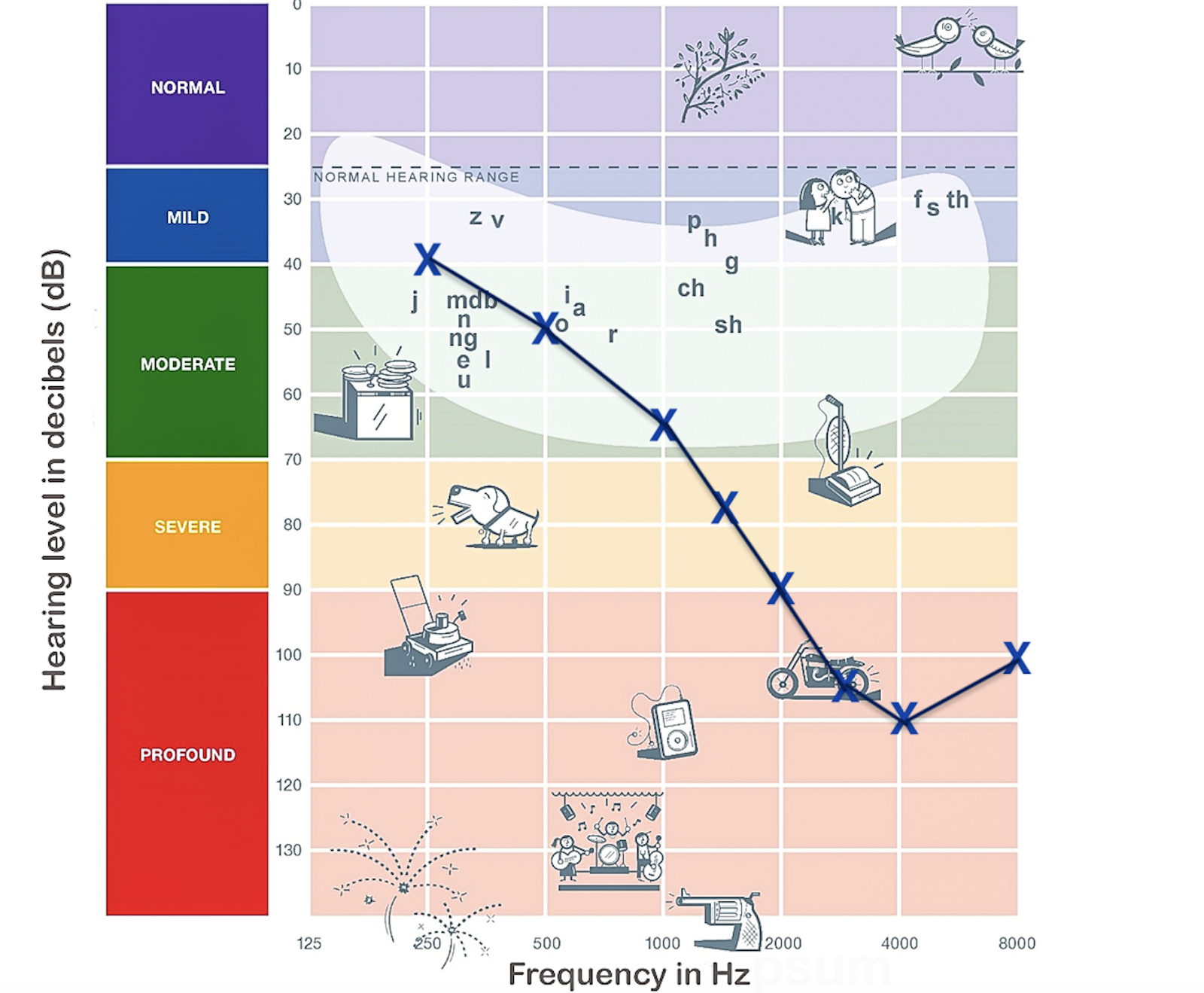
Even with the assistance of hearing aids, individuals with profound hearing loss often still encounter significant challenges with speech clarity. In such cases, hearing aids serve as a tool to reinforce visual cues rather than restore hearing to normal levels.
On the other hand, a patient with a flat, profound hearing loss or a 'corner audiogram' might achieve only environmental awareness with the use of hearing aids. For them, visual cues become indispensable for engaging in conversation. Understanding these nuances is crucial in identifying the most supportive solutions for those affected.
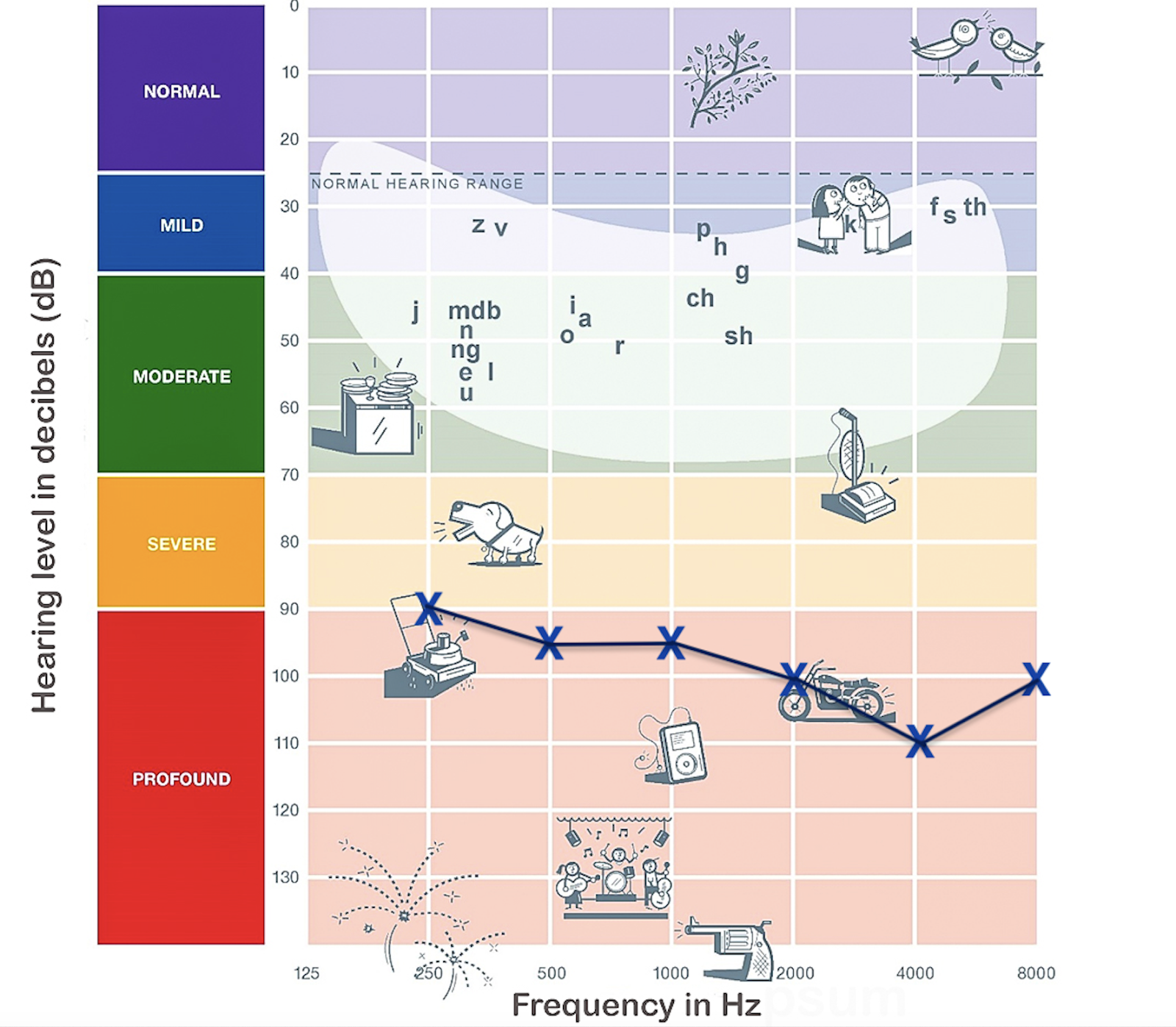
Flat, profound hearing loss restricts the ability to hear anything except very loud sounds. It's the 'quiet' of a library that stretches into the clamor of conversations at any volume lower than a shout. It may become difficult for individuals to differentiate speech from background noise or to localize or decipher environmental sounds.
What causes profound hearing loss?
Unlike conditions that could be alleviated through earwax removal or mild ear infections, profound hearing loss is often the result of irreversible damage to the inner ear or auditory nerve. Causes can range from noise damage, genetic predispositions, certain ototoxic medications, tumors, or head trauma.
As a note, it's crucial for anyone noticing unilateral (one-sided), asymmetric (uneven between ears), or new, sudden changes in their hearing to consult with a healthcare provider to rule out any medical conditions that may require treatment prior to considering hearing aids.
Such symptoms could indicate conditions ranging from ear infections to acoustic neuromas, and it's imperative to identify and address these potential health concerns. An audiologist or an ENT specialist can conduct comprehensive evaluations to diagnose and evaluate hearing loss. Therefore, getting a thorough medical evaluation is a critical first step in your hearing health care, especially before proceeding with options like hearing aids.
Selecting the Right Care Model
Selecting a hearing aid is not just about selecting a product; it's about aligning with the care model that best suits your needs. Whether you opt for traditional in-office care with the expertise of an audiologist, tele-audiology services, or Costco's blend of quality and affordability, the first step is setting the foundation for the hearing experience you seek.
Is Costco right for someone with profound hearing loss?
To cut to the chase: Costco has options for severe hearing loss but not for profound. Especially for patients with flat, profound hearing loss, Costco is not their best option.
Aside from hearing loss severity, determining the best option for hearing care is highly personal and depends on various factors, including the complexity of one's hearing loss, budget constraints, and preferences for personalized care. Costco used to have Brio 5 BTE-UP hearing devices that could fit profound hearing loss, but after Phonak’s products were removed from Costco, there are no longer options for a flat profound hearing loss. Patients will be best served by a local clinic if they have complex ear history or needs or more than a severe hearing loss.
Note: Costco’s best option for a profound sloping hearing loss is a Jabra RIC with a more powerful receiver.
Consider the example of a married couple I've worked with who navigated their hearing loss journeys differently based on their unique needs and preferences. The wife, dealing with a more complex ear history (otosclerosis), opted for the care provided by a local clinic with an audiologist. This setting allowed her to have her to get personalized care that she wanted - services that she valued deeply. Some patients prefer that one-on-one, personalized relationship that they get with a provider at a local clinic that might also include loaner devices while a hearing aid is repaired, having a direct contact if they have questions or concerns, and seeing a familiar face at each clinic visit.
On the other hand, her husband chose to purchase his hearing aids from Costco, influenced by positive reviews from friends and the appeal of budget-friendly options without compromising on quality.
This story highlights that there is no one-size-fits-all answer to "Is Costco right for me?" For some, the value and convenience offered by Costco's hearing aid services perfectly align with their needs, especially when budget is a primary concern and their hearing loss is relatively straightforward. Patients with a hearing loss that slopes to profound may still find hearing aids that can accommodate their loss. Others, particularly those with a flat, severe or profound hearing loss, more complex hearing histories, or who value highly individualized care, might find that a local clinic with an audiologist is more suited to their requirements.
Ultimately, the decision between Costco and other care models hinges on understanding your specific hearing needs, preferences for care, and financial considerations. It's essential to weigh the advantages of each option carefully and choose the path that will offer you the most satisfaction and support for your hearing health.
Read more about what to expect at Costco in this in-depth review.
Realistic Expectations
It's all too simple to have grand expectations of a hearing aid revolutionizing your world, but it's essential to ground these hopes in reality. A hearing aid for profound loss is not a restoration of 'normal' hearing, but a tool to enhance the sounds you can hear.
The Learning Curve
If you're new to hearing aids, it's essential to realize that the adjustment process takes time. Fortunately, Costco offers a generous 180-day trial period. This means that you'll have plenty of time to try out your new hearing aids and return for adjustments or follow-up appointments. Adapting to hearing aids requires patience and consistency, as your brain relearns how to process sounds that it may not have heard for a long time. This period also allows you to experiment with your hearing aids in different environments and situations, giving you the opportunity to fully understand how they work and how they can best serve your needs. Costco's trial period provides a safe, risk-free environment to undergo this adjustment period, ensuring that you can make an informed decision about your hearing health without feeling pressured or rushed.
What to Expect
When considering the various types of audiograms, such as high-frequency loss or flat loss, it's vital to set realistic expectations for what hearing aids can achieve. Different audiogram patterns indicate unique challenges and potential outcomes for individuals. For instance, individuals with high-frequency hearing loss may struggle more with understanding speech, especially in noisy environments, as the higher pitches of speech, where consonants like "s," "f," and "th" reside, are harder to discern. On the other hand, a flat loss impacts all frequencies relatively evenly, meaning that while the volume of sounds can be improved, clarity might still be an issue.
It's crucial to understand that speech will not be perfectly clear with hearing aids, regardless of the type of hearing loss you have. Hearing aids are highly sophisticated devices designed to amplify sound and make it easier for you to hear, but they can't completely restore normal hearing or eliminate background noise. In practice, this means you will have the best chance of understanding speech when the speaker is directly in front of you and within a reasonable distance. Situations where the speaker is in another room, has their back towards you, or is speaking from a location with lots of background noise may still pose significant challenges.
Adapting to these realities requires patience and a willingness to employ strategies that can enhance communication. For example, reducing background noise, asking people to face you when they speak, and utilizing additional assistive listening devices or technologies can make a substantial difference. Remember, the key to success with hearing aids is working closely with your audiologist to fine-tune your devices and learning how to maximize their potential in various settings.
Read more about strategies that can help here.
The Best Hearing Aids for Profound Loss at Costco
Costco's array of hearing aids caters to the many facets of hearing loss, but for those with profound impairment, specific models and features stand out. The following list is not exhaustive but serves as a starting point on your quest for clarity.
Behind-the-Ear (BTE) Hearing Aids
BTE aids are powerful enough to manage profound hearing loss and rest behind or on top of the outer ear. Most of these devices come in rechargeable options today, though you can also find some with disposable batteries if that is your preference.
In-The-Ear (ITE) Hearing Aids
While BTEs might be the go-to for power, ITE hearing aids can also be an option. They are molded to fit the individual's ear anatomy, providing a snug and discreet solution for profound loss. This option works especially well for those with dexterity challenges.
Best BTE Hearing Aids at Costco for Profound HL
For those with profound hearing loss we recommend Jabra Enhance Pro 20. Here are some of the product highlights:
Jabra Enhance Pro 20 - $1,599
Great in Background Noise
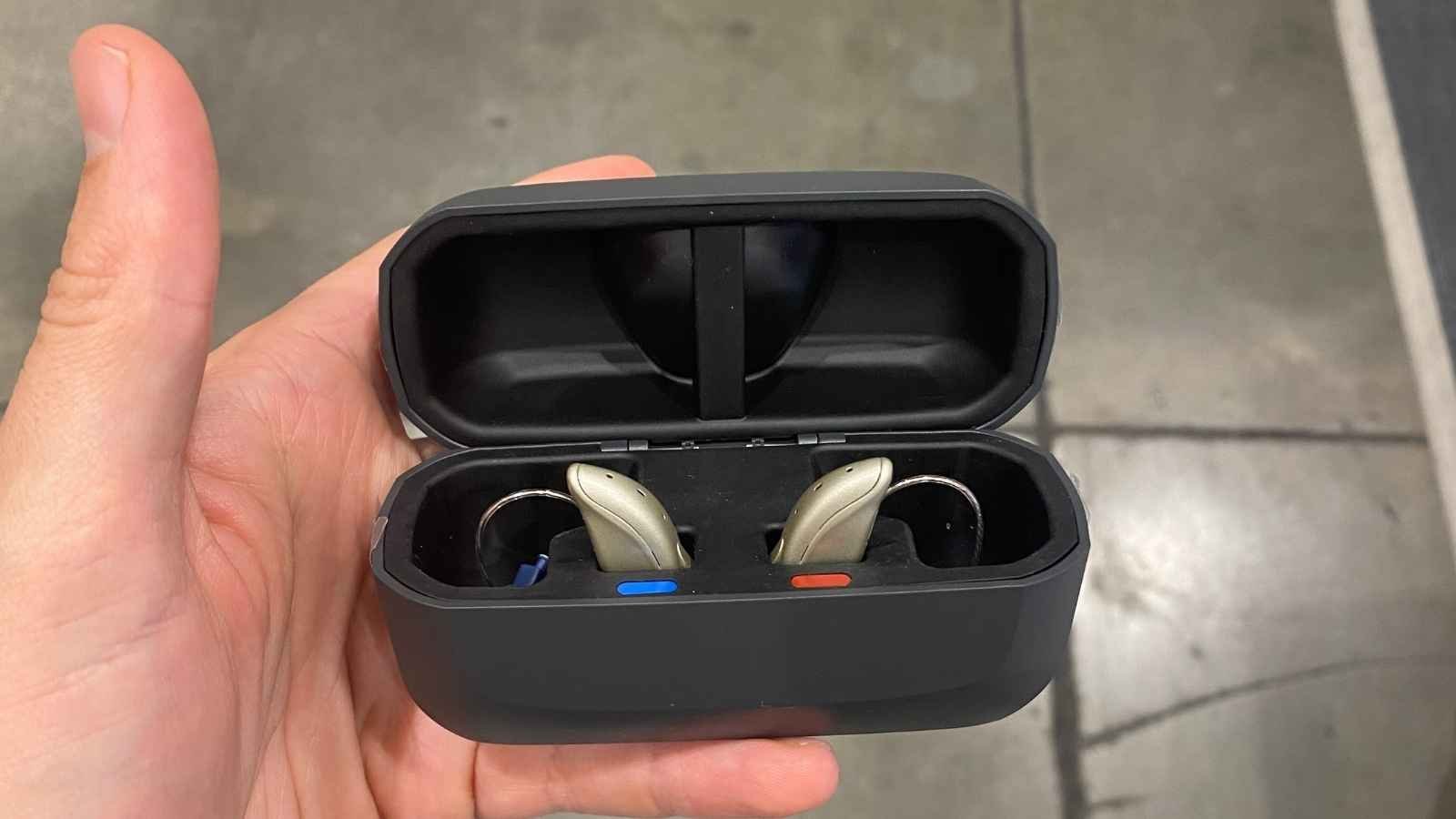
What Stands Out
Jabra Enhance Pro 20 hearing aids start at $1,599 for a pair at Costco and feature a third ear microphone for better sound quality. They're made by GN Hearing, the same company behind ReSound hearing aids, and are nearly identical to the ReSound NEXIA 9 device. I like Jabra Enhance Pro 20 for its ability to manage background noise. Wearers with mild-moderate hearing loss can opt for a M&RIE receiver - a third microphone inside the ear.
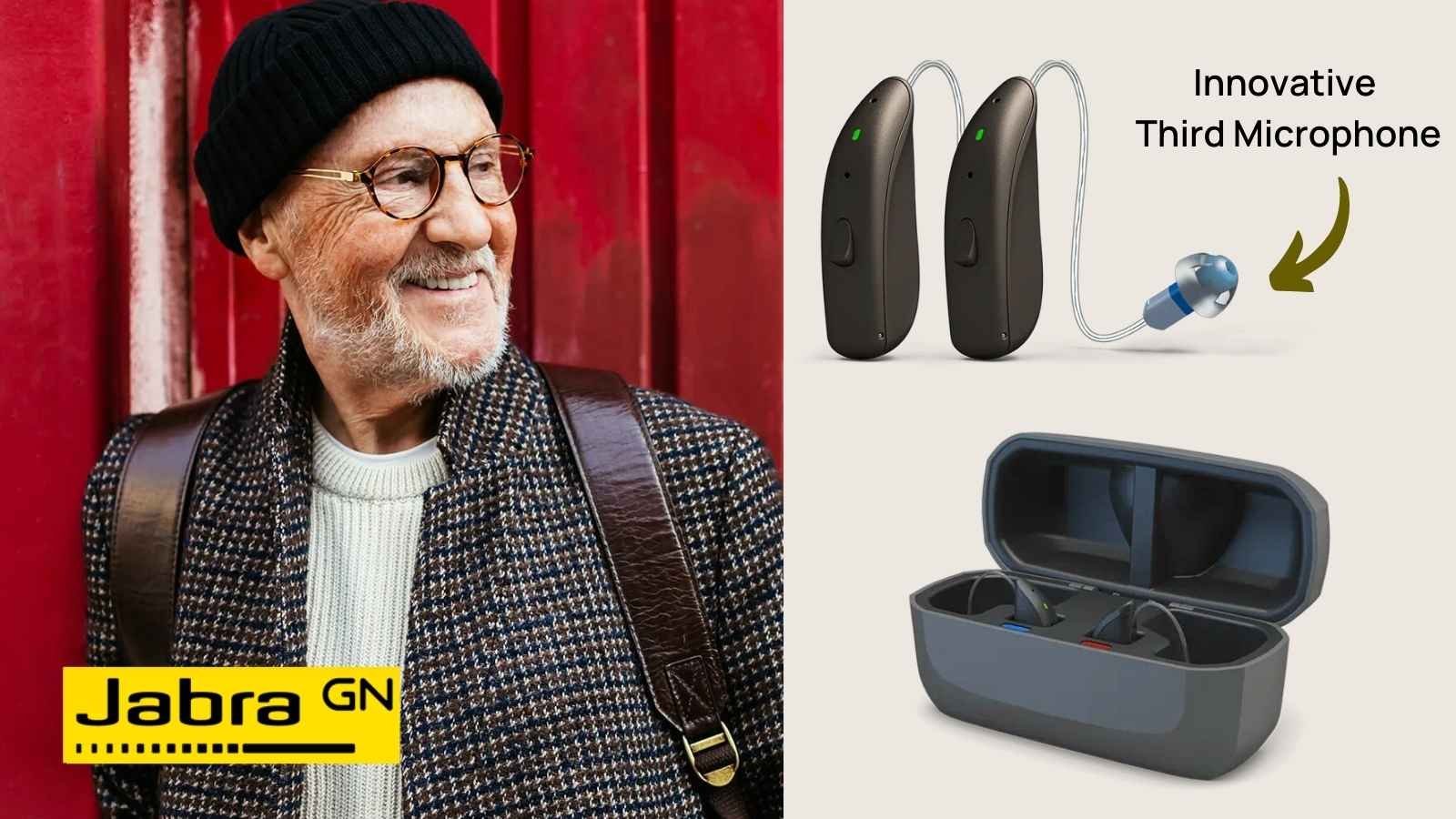
Jabra Enhance Pro Styles and Accessories
Jabra Enhance Pro Styles and Accessories
Jabra Enhance Pro is only available as a behind-the-ear style product and is currently available in 8 colors. Costco offers a few notable accessory devices.
- TV Streamer 2 - Allows direct TV streaming into your hearing aids
- Multi Mic and Micro Mic - Allow you to place an external microphone near a partner or near a speaker in a meeting for directly streamed audio
- Two remote controls - Choose between two remote controls that allow easy volume and program adjustments (you can make these same updates using the app or buttons on most models of the hearing aid)
Jabra Enhance Pro Tech Checklist
✅ Bluetooth streaming on Android and Apple devices
✅ Comes with the latest Bluetooth Low Energy and Auracast capabilities
✅ Rechargeable batteries with 30 hours of life per charge
✅ Optional 312 battery-powered version for those who prefer a non-rechargeable battery
✅ Automatic program adjustment that senses environment
✅ Remote program adjustments are available after the first two appointments
❌ No telecoil available
Final Thoughts
Navigating the landscape of hearing aids, especially for those grappling with profound hearing loss, can be daunting. Understanding your specific needs and the options available at Costco can significantly demystify the process. From Behind-The-Ear (BTE) models to In-The-Ear (ITE) aids, there are several choices that can provide enough power. However, those with profound, flat hearing loss will want to seek care at a local clinic.
It's imperative to approach this journey with realistic expectations and patience, recognizing the adjustment period as a crucial phase of acclimatization. Leveraging Costco's generous trial period can offer the reassurance and flexibility needed to find the most suitable solution.
Ultimately, the effectiveness of hearing aids lies in collaboration with hearing care professionals and employing strategies to improve communication in challenging listening environments. Costco's selection provides a robust starting point for those with profound hearing loss to regain clarity and enhance their auditory experience. With the right approach and support, achieving improved hearing health and quality of life is within reach.

